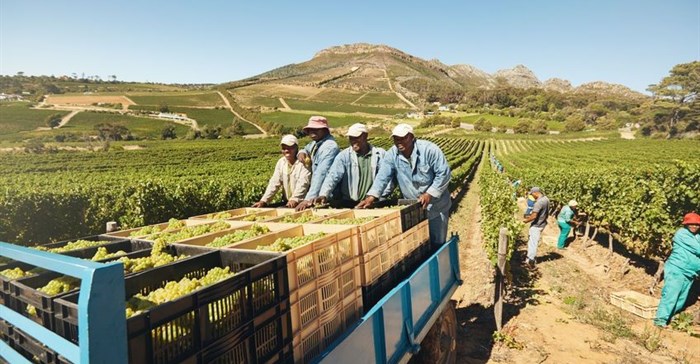
Related


Apple faces new lawsuit over Congo conflict minerals
Maxwell Akalaare Adombila and David Lewis 27 Nov 2025




Top stories






More news

Marketing & Media
Ads are coming to AI. Does that really have to be such a bad thing?















The 2016 Global Slavery Index estimates that 248,700 people are trapped in situations of modern slavery in South Africa, and the Walk Free Foundation survey suggests that more than 200,000 of these are in situations of forced labour, often receiving little or no pay, living in inhuman conditions, subject to threats and abuse and unable to leave.
Due to the nature of its often temporary and sub-contracted workforce, agriculture is recognised as an industry with a high risk of forced labour and hidden labour exploitation, or as it is now referred to as “modern slavery”. However, it is a hidden crime and many businesses are not aware of or equipped to identify and prevent it.
Stronger Together South Africa brings together the industry bodies and businesses across the fruit and wine supply chains in order to support responsible business practices, as responsible businesses are key in tackling hidden labour exploitation. This new specialist, collaborative industry programme aims to protect and enhance the reputation of the businesses in the wine and fruit growing sectors as good employers.
Businesses will be supported to take proactive measures to detect, deter and deal with forced labour within their own operations and supply chains, and have a platform for sharing challenges and good practice. The programme will facilitate dialogue between fruit and wine companies and with the international markets they supply to. Producers, their staff and other stakeholders from both industries will be able to access pragmatic yet practical advice through a free downloadable toolkit, guidance and resources, and face-to-face interactive training workshops beginning in January 2018.
Jantine Werdmuller von Elgg, the global programme lead for Stronger Together says: “We know that forced labour is a global problem, but to combat it we need a local response, as well as increased dialogue within global supply chains. We are excited to work collaboratively with our South African partners and international retailers on this programme to place businesses as key positive actors for change in reducing modern slavery within the wine and fruit growing industry. We encourage every business within the sector to join this programme by attending free training and accessing our resources. Together we can tackle this exploitation.”
Linda Lipparoni, the CEO of WIETA says: “Over the last ten years, the wine and fruit industries have been committed to improving labour conditions for farm workers and have demonstrated this commitment through the participation in ethical audits and continuous improvement programmes.
Forced and bonded labour in the South African agricultural sector is, however, still largely misunderstood and often goes undetected. Our partnership with Stronger Together will ensure that we are able to assist South African producers to identify and tackle modern slavery in the form of forced and bonded labour by applying good, responsible sourcing practices and ensuring that their businesses adopt the required due diligence to combat this form of exploitation.”
Retha Louw, general manager for SIZA says: “A sustainable business can only succeed in societies in which human rights are respected and people are treated fairly. Workers with healthy, core values and norms are more inclined to lead healthy, productive lifestyles and thus be able to be productive and efficient workers. SIZA will play a leadership role in promoting forced and bonded labour compliance in the industry by monitoring and assess fair labour practices. That will ensure that suppliers recognised the areas where they are at fault so that it can be corrected and support the UK market to adhere to the requirements set by legislation. Therefore, I would like to urge you all to embrace this opportunity for training and to learn as much as you can so that you can have a clear understanding of what exactly forced and bonded labour entails.”